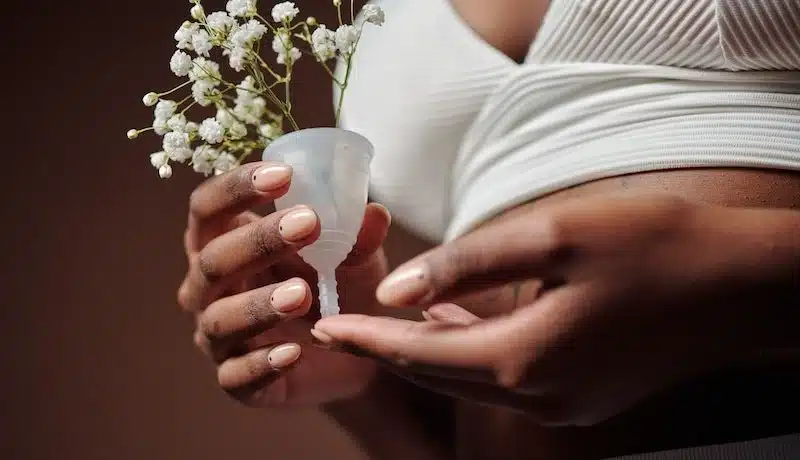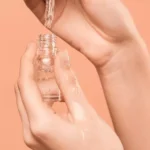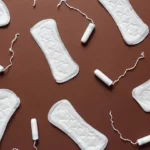What is Menstrual Hygiene?
Contents
Menstrual hygiene is a vital part of a healthy menstrual cycle, where changing sanitary items regularly and keeping the area hygienic come.
The period (menstrual) is a natural and necessary process to start the reproductive system in females.
Menstrual hygiene is very important in many ways such as:
- Prevent infection risk
- avoid health complications like UTI (urinary tract infection) and PID (pelvic inflammatory disease)
- reduce skin infection
- promote overall comfort
- reduce odour
- support mental health by preventing
- allow women to maintain their self-esteem socially without any embarrassment and discomfort
NOTE: In addition, a vital question is, how do we know when the first period will happen?
Pay attention to your breast shape and size will start changing, notice discharge, usually thick, light-white in colour (usually happening 6 months before 1st period starts)
If you notice any discomfort, change in period colour, etc, then you should visit your doctor, proper diagnosis help in it.
So let’s forward to 8 essential pieces of advice for a healthy menstrual cycle.

Choose Right Products
A very important point, choose the right products like pads, tampons, and menstrual cups which most used menstrual products.
Pads: Almost every girl uses these, because easy to use, and comfortable, the material is soft, and the absorbing capacity is good.
Tampons: The best pros of tampons are that it is small in size which makes them easy to carry, even in pocket.
Menstrual cups: You can wear them for up to 12 hours, compare to pads, and tampons, which also keep the vagina dry, and prevent bacteria.
However, there are other products that you can also use are:
- Panty thinner: You can use it as a backup for tampons and cups.
- underwear: period underwear is specially designed to absorb liquids
But some factors should keep in mind while choosing the products like comfort, material, and liquid absorbing capacity.
Wash Your Hands
After using pads, tampons, and cups, or dispose of sanitary pads make sure you wash your hands properly, especially nails.
It is a vital part of menstrual hygiene, before and after changing the products wash your hands well, which prevents bacteria and infection to spread.
Change Sanitary Products
Another vital menstrual hygiene part, changing sanitary products from time to time, to prevent infection, and bacteria risk.
Each sanitary product has its own time to keep in the vagina such as:
- Pads: An average time to change is every 3 to 4 hours, however, it depends on how heavy is your period (3)
- Tampons: FDA says, tampons should not stay in the vagina for more than 8 hours, more than this increases the risk of infection
- Cups: In the case of cups, you can keep it up to 12 hours, which makes it an excellent choose on compared to tampons and pads.
So make sure to change sanitary pads from time to time, to prevent bad odour, infection, bacteria, and leaks.
Dispose of Sanitary Products Properly
After wearing, and cleaning the sanitary pads, tampons, and cups, make sure you dispose of them the right way such as:
- Use a disposable bag, and the container is sealed properly and put it in the dustbin (5)
- wrap your sanitary pads properly and flush them on the toilet, do not use this on cups, which may block the pipes.
Make sure to wash your hands properly after disposing of sanitary products which prevent infection spreading risk.
Wear Loose-Comfortable Cloths
During periods cramps are one of the biggest enemies who torture all that time, leading to pain, discomfort, irritation, and anger.
This way you promote your proper circulation, causing a cool and comfortable feeling during periods
Wearing loose and comfortable clothes enhance overall comfort, and avoiding tight and fitted clothes, makes the situation worse.
Keep your Intimate Hygiene
Intimate hygiene refers to the practice of keeping the cleanliness or care of private areas including the vagina, penis, and gential.
Here is how can you keep your intimate area clean and healthy (4) which includes:
- Use soap and wash, avoid harsh soap
- wear clean and breathable underwear, which prevents bacteria and fungal infection risk
- practice safe intercourse, and use lubrication and condoms to prevent friction and unwanted pregnancy.
- keep the private area dry, by wearing breathable and loose underwear
- don’t hold urination
- cut messy hair, however it individual own choose
- urinate after intercourse, prevent the several infection risks (5)
Intimate hygiene is vital as same body hygiene and health so make sure to give priority to your private area hygiene.
If you notice any kind of pain, or discomfort when you should visit your healthcare provider.
Take Enough Rest
During this period of time body needs extra rest to cool down anger, pain, irritation, frustration, etc which happen by cramps (6)
Getting enough sleep, and taking enough rest also support mental health (a major factor to control overall discomfort and pain)
Make sure to avoid heavy lifting (especially if you do not do any work like this) and stressful activities.
If you are unable to sleep well due to any reason including insomnia, or sleep apnea, then you should consult your doctor first.
Insomnia is a common sleep disorder, where individuals hard to fall asleep, it affects about 35% of adults.
Sleep apnea is another sleep disorder, where breathing stops and starts many times while in sleep, and occurs due to many reasons.
Visit Healthcare Provider
If you face, and notice any kind of intimate hygiene issue, then you should visit your doctor, it may be some other health issue.
Here are some situations where you have to consult your doctor about menstrual hygiene and health include:
- Breast pain during the menstrual cycle
- irregular periods
- pain increase frequently
- blood clots during periods
- change in period colour
- any type of health issue like dizziness, back pain, etc
It may be some other health issues signs, so proper diagnosis and early treatment prevent further health concerns.
In addition, important advice for maintaining healthy menstrual hygiene is:
- Monitor your period cycle: if you are unable to do this on your own, you can help your doctor
- check signs: Many women notice cramps, mood swings, and night sweats if they experience other signs, then visit your doctor.
- Ready for your periods: keep enough sanitary items, disposable bags, and whatever you like during the period like music, sleep, etc.
- Take help: Consult your doctor, and friends about periods.
How to Deal with Cramps and Other Discomfort?
As we know that period comes every month, so make sure you are prepared for every cycle through several tips including:
- Stay active: Promoting fitness for a long time helps control the cramps and supports mental health also.
- Eat a well-balanced: Healthy diet throughout the cycle prevents several other health issues like anger, irritation, etc
- Stay hydrated: Keep yourself hydrated with water and other liquids like coconut water, which prevent blood clots during the period.
- Avoid scent: Make sure to avoid any type of perfume and scent in a private area which can lead to redness, swelling, etc
- Use essential oil: because it contains several agents like anti-inflammatory, and antiseptic, which are even used in period medicines.
- Dark chocolate: It contains omega-3, and 6 and several vitamins and minerals which make it a better choice for reducing period cramps.
Down Line
Periods are natural processes in females, which should occur every month, if you notice any irregular then visit your doctor.
Make sure to use clean sanitary pads, use disposable bags, and wash hands properly before and after using sanitary items.
If you experience any discomfort, pain, and other health concern, then you should consult your healthcare provider.


